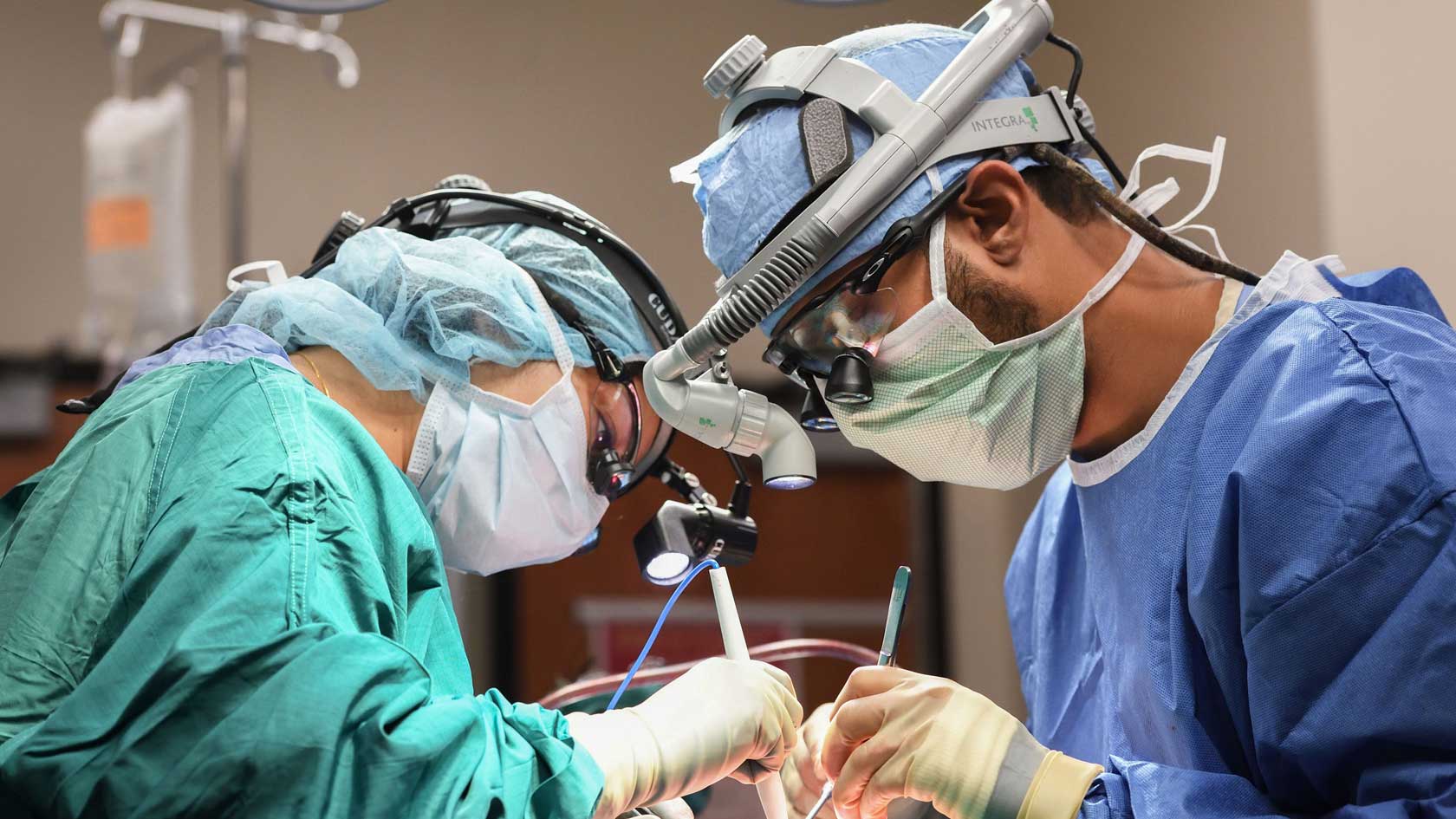Ways ENT Clinics Provide Expert Allergy and Sinus Care
Ways ENT Clinics Provide Expert Allergy and Sinus Care
Blog Article
Discovering the Area of Otolaryngology: What to Anticipate When You Consult an ENT
Otolaryngology, frequently referred to as ENT, includes the medical diagnosis and treatment of throat, nose, and ear conditions. For those experiencing relevant issues, getting in touch with an ENT specialist can give clarity and alleviation. Understanding what to anticipate throughout such assessments is essential for reliable communication and treatment. This summary will detail vital facets of the ENT experience, consisting of usual reasons for brows through and the processes associated with diagnosis and therapy.

Recognizing Otolaryngology: A Review
Otolaryngology, commonly described as ENT (Ear, throat, and nose) medicine, is a customized branch of medicine that concentrates on the medical diagnosis and treatment of problems impacting these essential areas of the human body. This field includes a variety of conditions, consisting of those related to hearing, balance, breathing function, and speech. Otolaryngologists are educated to manage both clinical and surgical therapies, utilizing sophisticated techniques and technologies. Their competence expands beyond traditional ailments, attending to problems such as allergic reactions, sinus infections, and hearing loss. In addition, they play an important role in the monitoring of head and neck cancers cells, offering detailed treatment customized to individual patient requirements. On the whole, otolaryngology remains necessary for preserving health and lifestyle in afflicted individuals.
Common Reasons to See an ENT Specialist
Lots of individuals look for the competence of an ENT specialist for a range of reasons, mirroring the varied nature of conditions that affect the ear, throat, and nose. Common problems include persistent sinusitis, which frequently causes relentless nasal congestion and face discomfort. Allergic reactions and their linked signs, such as itching and sneezing, likewise prompt sees to these specialists (ENT). Hearing loss, whether unexpected or progressive, is an additional substantial factor for assessment. On top of that, people may seek evaluation for throat disorders, including consistent hoarseness or swallowing difficulties. Sleep apnea, identified by disturbed breathing throughout sleep, is frequently dealt with by ENT professionals too. Each of these problems highlights the significance of specialized treatment in handling complex ENT-related wellness concerns
Planning for Your ENT Visit
When planning for an ENT appointment, it is important to collect pertinent information and take into consideration any type of certain issues. People ought to put together a comprehensive clinical history, consisting of previous ear, nose, or throat problems, surgical procedures, and current medications. Recording symptoms-- such as frequency, seriousness, and duration-- can give beneficial understandings for the ENT professional. Additionally, people ought to prepare a listing of inquiries they want to ask, making certain that all issues are attended to during the check out. Bringing along any kind of appropriate clinical documents or test outcomes can additionally help the ENT in understanding the person's problem. Lastly, people must validate their appointment details, consisting of location, day, and time, to decrease any kind of last-minute confusion. Proper prep work can improve the performance of the examination and cause much better end results.
What to Anticipate Throughout the Appointment
As the consultation starts, the person can anticipate to take part in a detailed discussion with the ENT specialist concerning their signs and case history. The specialist will ask about the duration, regularity, and seriousness of symptoms such as hearing loss, nasal blockage, or sore throat. Furthermore, the client's previous medical problems, medicines, and any pertinent household history will be reviewed, aiding the professional in developing a full understanding of the individual's wellness. The ENT might additionally inquire about lifestyle factors, such as direct exposure to allergens or irritants. This open discussion establishes a structure for the appointment, making certain that the patient's problems are addressed and setting the phase for any required assessments or referrals for therapy.
Diagnostic Examinations and Treatments in Otolaryngology
A variety of diagnostic examinations and treatments are important in otolaryngology to accurately evaluate and detect conditions influencing the nose, ear, and throat. Usual tests include audiometry, which determines hearing function, and tympanometry, analyzing center ear stress. Nasal endoscopy permits visualization of the nasal flows and sinuses, while laryngoscopy examines the throat and singing cables. Imaging methods, such as CT scans and MRIs, supply detailed views of head and neck structures. Allergic reaction screening may additionally be performed to identify triggers for sinus or respiratory issues. These analysis tools enable ENT experts to create a detailed understanding of clients' problems, ensuring tailored and efficient administration plans. Appropriate diagnosis is vital for effective therapy end results in otolaryngology.
Therapy Choices Used by ENT Specialists
ENT experts offer a range of therapy choices customized to deal with certain conditions impacting the ear, throat, and nose. These treatments range from traditional strategies, such as medication his explanation and way of living adjustments, to even more intrusive procedures. Allergic reactions might be managed with antihistamines nasal drip throat or immunotherapy, while persistent sinusitis could need nasal corticosteroids or sinus surgical procedure. For hearing loss, ENT experts commonly suggest listening devices or medical interventions like cochlear implants. In situations of throat conditions, choices can include speech treatment or operations to eliminate blockages. Additionally, they might provide assistance for handling sleep apnea, consisting of using CPAP gadgets or surgical interventions. Generally, the goal is to boost patients' high quality of life through personalized treatment and effective treatment methods.
When to Look For Follow-Up Treatment With an ENT
Acknowledging when to look for follow-up treatment with an ENT professional is crucial for handling continuous signs or issues associated with ear, throat, and nose conditions. People should think about scheduling a follow-up appointment if signs and symptoms linger in spite of first treatment, such as chronic ear discomfort, nasal congestion, or throat pain. Modifications in hearing, equilibrium concerns, or unusual nasal discharge might additionally necessitate further examination. Additionally, if a person experiences side results from recommended drugs or has actually undertaken a procedure, follow-up treatment is very important to keep track of recovery and deal with any type of issues. Prompt assessments can assure reliable management of conditions, protect against prospective issues, and supply assurance relating to one's health and wellness. Seeking follow-up treatment promotes proactive health management in otolaryngology.
Frequently Asked Inquiries

What Qualifications Should I Try to find in an ENT Professional?
When seeking an ENT expert, one need to seek board accreditation, appropriate experience, and strong client evaluations. Furthermore, efficient communication abilities and a caring method can Web Site greatly improve the general treatment experience.
How Do I Choose the Right ENT for My Requirements?
Choosing the ideal ENT specialist involves evaluating their credentials, experience, and person evaluations (ENT). It is important to ponder their communication design and strategy to therapy, ensuring they align with the person's specific health needs and preferences
Exist Any Type Of Threats Connected With ENT Procedures?
The dangers connected with ENT treatments may consist of infection, bleeding, anesthetic difficulties, and possible damages to surrounding structures. Clients ought to talk about these risks with their medical professional to understand private worries and warranty notified choices.
Just How Can I Handle Anxiety Prior To My ENT Appointment?
To manage anxiousness before a visit, individuals can practice deep breathing exercises, imagine positive end results, prepare inquiries beforehand, and seek assistance from close friends or family members, cultivating a feeling of peace of mind and calmness.
What Should I Do if I Experience Negative Effects From Therapy?
If side results from therapy take place, the individual ought to immediately report them to their medical care copyright. Adjustments to therapy or extra interventions might be needed to ensure security and effectiveness in handling their problem - Voice. As the appointment starts, the patient can anticipate to involve in a detailed discussion with the ENT expert about their signs and symptoms and clinical history. These diagnostic devices allow ENT specialists to develop a detailed understanding of clients' problems, making sure tailored and efficient administration plans. ENT specialists supply a variety of treatment options tailored to address details conditions influencing the nose, ear, and throat. When looking for an ENT professional, one need to look for board accreditation, appropriate experience, and solid client testimonials. Picking the ideal ENT specialist includes evaluating their certifications, experience, and client evaluations
Report this page